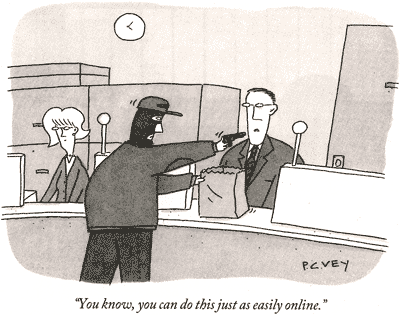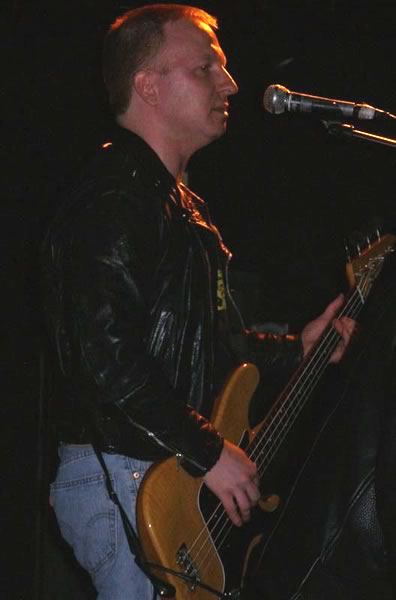
Photo by Rannie “Photojunkie” Turingan.
Today is the 40th day since Dad’s death. As is the Catholic tradition, we said the rosary for the first nine nights after his death (Wendy, who’s never seen this before, has a story about that) and there’s a prayer service on the 40th day. I thought I’d mark this day with a couple of items: one written by my sister Eileen and one by me.
Elegy for Dad
Eileen delivered this elegy at Dad’s funeral mass at All Saints Church last month. It appears in the current issue of Filipiniana, a local Filipino newspaper.
Good morning — as most of you know, my name is Eileen and I am the daughter of Dr. Jun deVilla.
First of all, on behalf of our family, I would like to thank you all for coming to this memorial mass fo rmy father. i would like to extend a special thank you to those who have travelled great distances to be here with us and lend their support to our family during this difficult time.
Today, we have gathered to bid a fond farewell to Dr. Jun deVilla: family man, physician and healer, pillar of the community and a man I was proud to call my Dad.
It is difficult to find the words to express my feelings for him — not for a lack of things to say, but rather the opposite. He was such a truly remarkable person that words do not seem to do him justice; but to refer to one of the readings from today’s mass, I think the word that comes closest is “love”.
The love he had for his family was plain to see. He was the loving brother to four sisters and his mother’s very special boy. Auntie Beth often said that he and Grandma had their own mutual admiration society. Those of you who knew him in his younger years or have seen pictures from back then know he grew up into a very handsome young man, who fell in love and married Mom. He was a devoted husband and partner to Mom, with whom he shared a beautiful relationship, filled with love and mutual respect. He had two children, my brother Joey and of course me, to whom he was a kind and loving father, showing us how to live and providing us with guidance not only with his words but by his actions. In recent years, he became a proud and loving grandfather. In fact, so great was his love for his grandsons Aidan, Nicholas and Ryan that if he went longer than 24 hours without seeing them, he would experience “withdrawal symptoms”.
But Dad’s love was not confined to his immediate family. Anyone who was family — whether part of his large extended family or those friends that became like adopted family — knew that they could count on “Uncle Jun” when needed to lend an ear or lend a hand.
Out of love for family, he took them out of the Philippines during a time of crisis and moved to Canada. Although he grew to love his adopted home, he never forgot the land of his birth and saw himself as a proud citizen of both Canada and the Philippines. He involved himself with several Filipino-Canadian groups, from medical associations to cultural centres to those that helped Filipinos moving to Canada to adjust to their new home — all of which were aimed at promoting the well-being of his fellow countrymen, his kababayans.
To put it simply, Dad lived his life with love.
He passed away the way he wanted to: surrounded by the people he loved most. He saw both his children grow up and get married and got to see his grandchildren, whom he loved as only a doting grandfather could. He left this world knowing that the people he loved were secure, comfortable and happy.
There’s a saying that goes “What you leave behind is not engraved in stone monuments, but what is woven into the lives of others.” Looking out at all of you who have come here today, who come from many different walks of life and from many different places, I can see how Dad’s love has been woen into many lives and returned many times over. If we take that love and do with it as he did, lending na eaar, a hand or a shoulder to those who need it, greeting the world and our fellow human being with the smile, humour and warmth for which he was known, and working together for the betterment of our community then he will live on, in the way he would have wanted.
Before I close, I would like to take a moment to thank the friends and family that have provided us with support over the past couple of weeks. I would also like to thank Dad’s sisters, who came for so far away on such short notice: Auntie Thel, Auntie Gin and Auntie Beth. I would especially like to thank Auntie Beth, whom we have come to regard as Dad’s “guardian angel”. Whenever Dad was ill, all we had to do was call and Auntie Beth would drop everything and make the long journey from Manila to Toronto to be by Dad’s side. Auntie Beth, for everything you have done for Dad, for all the comfort and care that you have provided, for sharing your time with us so selflessly, we are and will always be be eternally grateful.
And finally to you, to my dearest Dad, we love you and we will miss you very, very much — more than I can say. But rest assured that you will forever be alive in our minds, in our hearts and in our actions.
Dr. deVilla, 1938 – 2006
I was asked by Filipiniana to write an article on Dad’s life; it is reprinted below.
On February 27, 2006, Dr. Guillermo “Jun” de Villa, passed away at the age of 67. Based on the outpouring of emotion and support from the people of all cultures, places and walks of life who attended the wake and funeral mass for him, it is clear that he meant so much to so many people.
Jun was born on July 19, 1938 in the town of San Juan in the province of Batangas, about 80 kilometres south of Manila. He was the only brother to four sisters. His father, Guillermo Sr., was a lawyer and the town’s mayor and his mother was a pharmacist. He was born to a privileged family who lived in a large house near the center of town, he never wanted to stand out as such. Although he was one of the few children in his class whose family could afford the luxury of proper shoes, he refused to wear them, not wanting to wanting to appear snobbish or spoiled.
As a young man, he helped his mother run her drug store, which would turn out to be a “trial run” for his later community work. A customer once came to the store with a prescription for his very sick wife, but the drugs cost more than he could afford. Jun filled out the prescription free of charge.
He studied at Ateneo in Manila, where he was a good student who achieved high grades. During his time there, he developed a strong interest in community work through his involvement with the Ateneo Catechetical Instruction League (ACIL), a student outreach organization that provides religious teaching to youth, especially the less fortunate.
Jun completed medical school and residency at the University of the Philippines. It was during that time that he met Maria Antonina “Nenettte” Ador Dionisio. They married in 1967, when Nenette completed her medical studies. Soon after getting married, they left for the US. to undergo residency training. Jun also spent this period conducting research as a Ford Foundation fellow.
In 1972, Jun brought his family back to Manila. He was eager to return to his homeland and wanted to ensure that his children also considered it home, surrounded by their large extended family. This plan was short-lived. The social turmoil and political unrest in the Philippines proved to be untenable and after much deliberation, Jun and Nenette decided to emigrate to Canada.
They arrived in Toronto in 1975, where Jun built up his medical practice, starting at the Wellesley Hospital and later at Sunnybrook Hospital. For many years, he was the only Filipino obstetrician/gynecologist in Toronto and as a result had the privilege of ushering in a number of Filipino-Canadian babies into the world. His coworkers at various hospitals would often remark that he was often smiling and always had a joke or funny story to tell. He was also actively involved in the teaching of medical students and residents and received of a University of Toronto Clinical Teaching Award in 1998.
Despite his busy medical practice and his active family life, he found the time to be an active member of the Filipino community in Toronto. Since 1980, he has participated in various groups: some political, some service-oriented and some promoting the well-being of Filipino Canadians in the Greater Toronto Area.
In the early 1980s, he was a active participant in the Movement for a Free Philippines and was instrumental in bringing such people as Senator Raul Manglapus, Cardinal Sin and Cory Aquino to Toronto. He was also one of the founding members of the Filipino Canadian Medical Association, and served as the association’s president from 1986-87. He spearheaded a number of organizations geared towards establishing a Filipino Community Centre, culminating in the purchase of the property at Parliament Street, the current home of the Filipino Centre Toronto.
His dedication and generosity to the community is well-known. One story that comes to mind is the time when he participated in a fifty-fifty fundraising draw for the Filipino community. He won the draw, and rather than take his share, he donated his winnings to the cause.
Among the many awards that he received for his outstanding service the community are the Banaag Award for his work in advancing the cause of Filipino overseas communities in 1991, the Government of Ontario Outstanding Achievement Award for Community Dedication and Commitment in 1997, the Outstanding Canadian Award issued by members of the House of Commons in 2000 and the Golden Jubilee Medal of Queen Elizabeth II in 2003, an award given to Canadian citizens “for an outstanding and exemplary achievement or service to the community or to Canada as a whole”.
His ties to his family are just as strong as his to the community. He was a devoted husband to Nenette for nearly forty years, a loving father to his children Joey and Eileen and a doting grandfather to his three beloved apos [grandchildren], Aidan, Nicholas and Ryan, whom he saw nearly every day. Although separated from them by thousands of miles, he maintained regular contact with his sisters in the US and the Philippines, visiting as often as he could. He had a special relationship with his sister Elizabeth, who flew to his side whenever he was seriously ill and who donated a kidney to him.
Although he died a relatively young man, he managed to touch the lives of so many people in his various roles, whether as family man, trusted physician, community leader or friend. Although he is no longer with us, the challenge that he took on remains: to serve his fellow human being, to treat people with compassion, generosity and kindness, to make a world a better place and to serve as an example for other Filipinos to follow.






